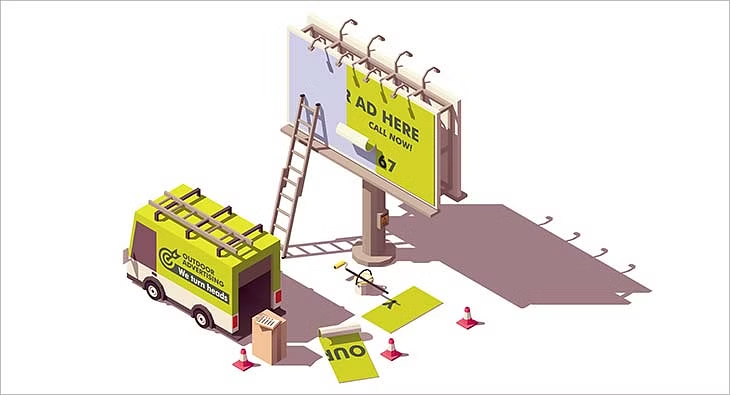Mumbai: The Mumbai State Road Development Corporation (MSRDC) has formally contested the Bombay Municipal Corporation’s (BMC) proposed draft policy concerning outdoor advertisements.
This opposition comes in the wake of objections from the Indian Railways, which contended that provisions of the BMC Act do not extend to hoardings on railway property. MSRDC’s objections specifically target the revenue-sharing model outlined in the draft policy. The draft policy proposes a 50:50 revenue split between the BMC and other governmental bodies such as MSRDC, in addition to the standard licence fees payable to the BMC. This proposal has sparked contention, with MSRDC expressing concerns that this revenue-sharing arrangement could undermine its financial interests.
In response to these objections and to accommodate further stakeholder input, the BMC has extended the deadline for submitting suggestions and objections to the draft policy until 9 September. The BMC has also indicated that it will conduct hearings where necessary to address these concerns. Notably, the Mumbai Metropolitan Region Development Authority (MMRDA) had earlier requested an extension to review the draft policy more comprehensively.
So far, the BMC has received approximately 53 responses, including both email and physical submissions. Feedback has been diverse, with several respondents voicing opposition to the inclusion of video advertisements on hoardings. Others have expressed concerns about hoardings mounted on vehicles, citing potential driver distraction as a significant issue. Additionally, housing societies have requested that existing hoardings on rooftops be exempted from new restrictions, arguing that these installations generate crucial revenue.
The draft policy has also attracted criticism from various quarters, including the NGO Nagar, which has raised several points of contention. Nagar has questioned the definition of “compulsory open spaces” within the policy and has urged that no hoardings be permitted in existing open spaces mandated under the Development Control Regulations (DCR) of Greater Mumbai. The NGO has further suggested prohibiting advertisements on heritage-listed buildings and within a 100-metre buffer zone around Grade I heritage sites.


